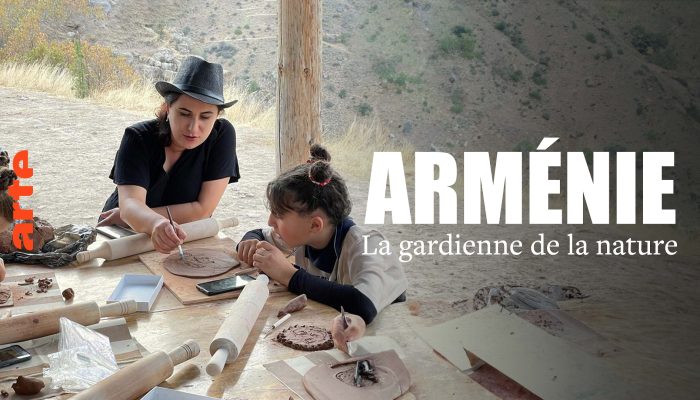To the Court of First Instances in Istanbul no:2
My name is Dora Sakayan. I am a Canadian retired Professor of German Studies (McGill University, Montreal, Quebec, Canada). I was born in Greece from Armenian parents who were refugees from Asia Minor. An educator by vocation, I am a scholar in applied linguistics, an author of a number of scolarly books and articles in Germanic philology and Armenology. It is obvious that my profession has little to do with conducting or analyzing political affairs. However, things have changed since 1992, the year when I came across my grandfather’s, Dr. Garabed Hatcherian’s diary on the Smyrna catastrophe. This became for me the culmination of my intellectual activity. In order to understand the sequence of events described in my grandfather’s diary, I had to research history. More importantly, I had to learn more about my grandfather’s life.
In 1995 I created my own publishing house in Montreal, Quebec, Canada (Arod books), and I first published the original version of Dr. Hatcherian’s diary in Armenian. Subsequently followed translations into English, French, German, Spanish, Greek, and Russian that were published in Canada, France, Austria, etc. In democratic countries, freedom of press, freedom of expression are absolute. Other than hate literature, anyone is free to write, publish and read whatever one wishes. My grandfather’s diary is a historic document. It is not a memoir, it is a journal based on facts, an objective eye-witness account recorded on a day-by-day basis, a first-hand testimony, written almost simultanuously to the events. Hatcherian is not a fictive name. His biography can be found in Turkish archives. His life is well documented in literature, and I read about him in three compatriot studies. According to these, he was born in 1876 as a descendent of the high-ranking Hatcherian family in Bahcecik. His great-grandfather, Hadji Hatcher, is known to have brought prosperity to Bahcecik by paving roads, introducing irrigation, building village wells, constructing houses and churches, promoting education, writing the history of the settlement, etc. After graduating from the Constantinople School of Medicine in 1901, Dr. Hatcherian worked for 10 years as a municipal doctor in Bursa. In 1914, along with 1,500 young men from Bardizag, Dr. Hatcherian was conscripted into the Turkish army and served there as a medical officer for the duration of WW1. For his excellent military service in Constantinople, the Dardanelles, Smyrna, and Romania, he was decorated with high military medals. In 1918, he settled down in Smyrna, to be close to his wife’s family estate in her ancestral birthplace Akhisar. During his military service, in 1915, while he faithful to the Hippocrates Oath was curing the wounded in the Turkish Army, his hometown Bahcecik was being ravaged , and his reletives and the friends were being killed. Dr. Hatcherian’s mother and brother could escape the massacres in 1915, to be butchered sevenyears later in Akhisar, near Smyrna in 1922. All ten members of Hatcherian family who stayed behind Akhisar were killed in 1922. Only Dr. Hatcherian and his five children could miraculously escape…
After being relieved from the army, Dr. Hatcherian settled down in Smyrna where he achieved social prominence. Dr. Hatcherian comes across as an optimist and pacifist who, despite the tragic events in 1915, still settles down in Smyrna in 1918, and in 1922 still believes that the Turks will not repeat the “mistakes of the past,” and that “they will demonstrate to the world that they are a civilized nation”. You have only to read the book carefully, to see how this optimism was shaken.
When I first heard that Mr. Zarakolu is about to publish my book in Turkey, I was full of enthusiasm and spread the news. People found the news incredible, and I was assuring them that today’s Turkey is different, that Modern Turkey is on her way to democracy.” In Spring 2005, my book “Garabet Hacheryan’s Izmir Journal: An Armenian Doctor’s Experiences” appeared in Istanbul and, to my great disappointment, Turkish Courts accused its publisher Ragip Zarakolu for the crime of publishing my book. Does history repeats itself? Was my optimism about Turkey as groundless and were my grandfather’s beliefs? Many similar questions arise in my mind:
Why should Mr. Zarakolu be punished for insulting Turkishness and the Turkish military? The author of the diary was not Mr. Zarakolu, it was Dr. Garabed Hatcherian, a loyal citizen of Turkey and an officer of the Turkish army himself.
Why should Mr. Zarakolu face trial for making available my book on Dr. Hatcherian’s diary to the Turkish reader? Does the Turkish reader need to be censored as to what it should or shouldn’t read? Are the Turkish readers not able to judge for themselves whether a book is or isn’t an insult to Turkishness or Turkish military? What happened to the democratic reforms that have entered in Turkey into force in the year 2003, aiming to improve the most criticised aspects of Turkish democracy, such as limits to freedom of speech and expression?
I am not an historian, but an intellectual who has common sense.
I am not a lawyer, but somebody who believes in human rights.
And I trust that justice will prevail in Turkey and Mr. Ragip Zarakolu will be aquitted.
Please do aquit Mr. Zarakolu. He is innocent.
Respectfully yours,
Dr. Dora Sakayan



